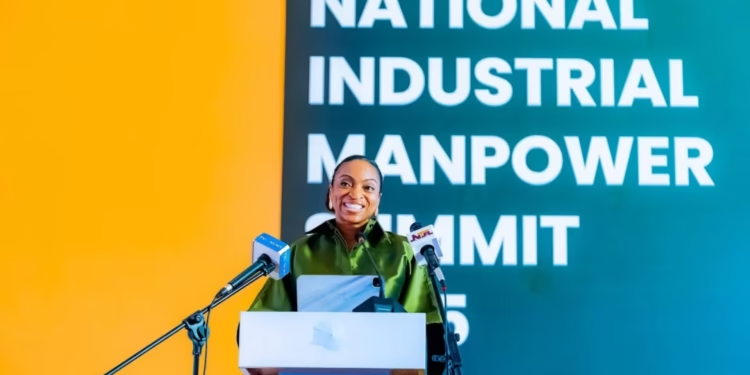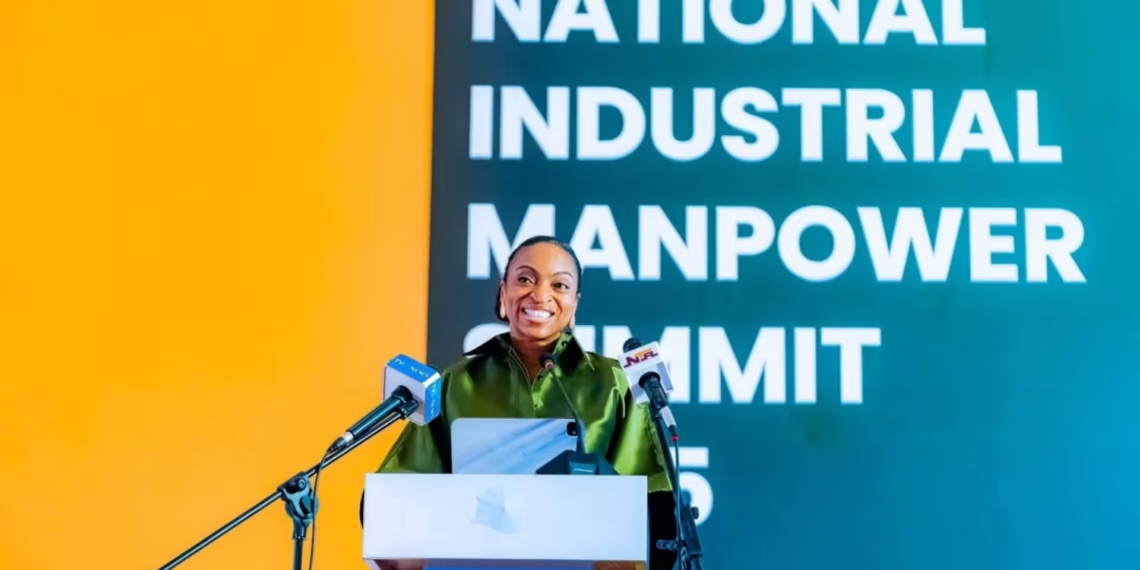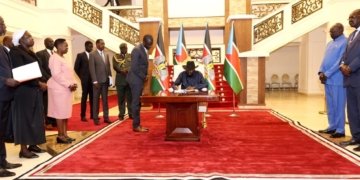Nigeria needs at least $1.3 trillion in annual financing to accelerate its industrial transformation and achieve economic sovereignty, the country’s industry minister said Tuesday.
Dr. Jumoke Oduwole, Minister of Industry, Trade and Investment, outlined the massive investment requirement during her keynote address at the National Industrial Manpower Summit in Abuja.
The funds would target critical infrastructure including energy systems, manufacturing facilities, housing, digital connectivity, and social sectors.
“The urgency is clear,” Oduwole said, noting that traditional aid flows are declining while concessional financing tightens across Africa.
The minister said the financing would come from domestic resources, capital markets, private investments, concessional finance, and foreign direct investment.
Oduwole presented a six-pillar strategy for Nigeria’s industrial transformation, anchored in President Bola Tinubu’s economic agenda. The strategy builds on Nigeria’s consumer market of over 220 million people, agricultural potential, critical mineral resources, rapid urbanization, regional market integration, and existing manufacturing base.
The manufacturing sector currently contributes 9.6% to Nigeria’s GDP and employs over 13 million people across food processing, cement production, textiles, pharmaceuticals, and automotive industries.
She said the sector could absorb Nigeria’s large youth population while reducing the country’s $10 billion annual import bill for manufactured goods.
Nigeria’s agricultural sector, which contributes 25% to GDP and employs a third of the workforce, represents another growth opportunity.
With Africa’s food and agriculture markets projected to reach $1 trillion by 2030, Nigeria aims to lead in agro-processing and value-added exports under the African Continental Free Trade Area.
The minister emphasized Nigeria’s strategic position in the African Continental Free Trade Area (AfCFTA), which creates access to a market of 1.4 billion people across Africa.
She said this integration allows Nigerian industries to achieve economies of scale and positions the country as a preferred production destination for West Africa.
Oduwole also highlighted Nigeria’s critical mineral resources, including limestone, bitumen, gold, lithium, and rare earth elements.
Local refining and manufacturing of these materials could enable exports of finished components for electric vehicles, batteries, and high-tech manufacturing.
The three-day summit, themed “Manpower Development: The Bridge Between Potential and Productivity,” runs through August 14.
The event focuses on developing industrial skills and training programs to support Nigeria’s economic transformation goals.
Oduwole said she had visited the National Agency for Science and Engineering Infrastructure campus, where she observed integrated models for innovation, manufacturing, and skills development, including solar panel production, electric vehicle assembly, and agricultural mechanization tools.

























